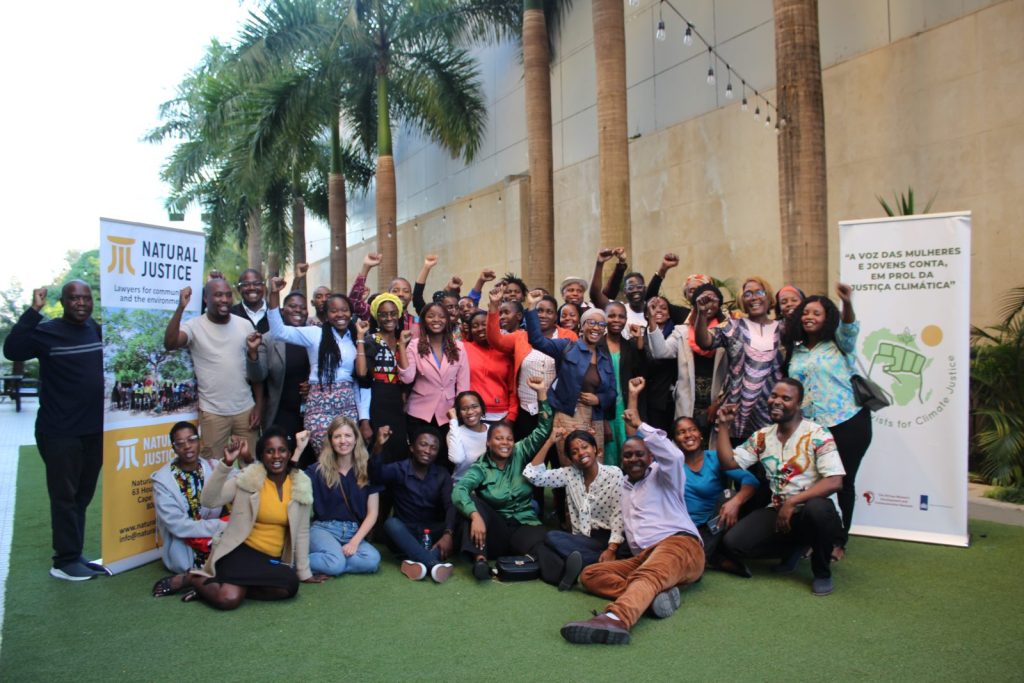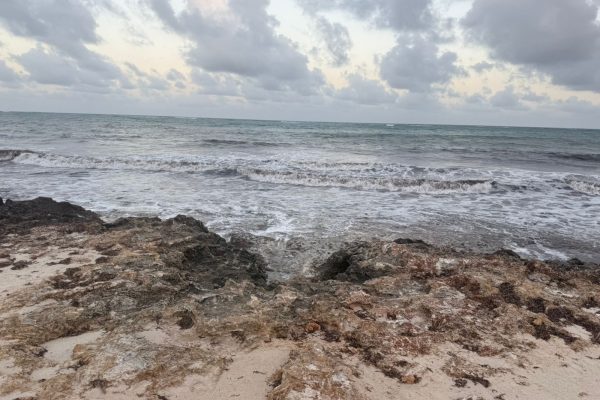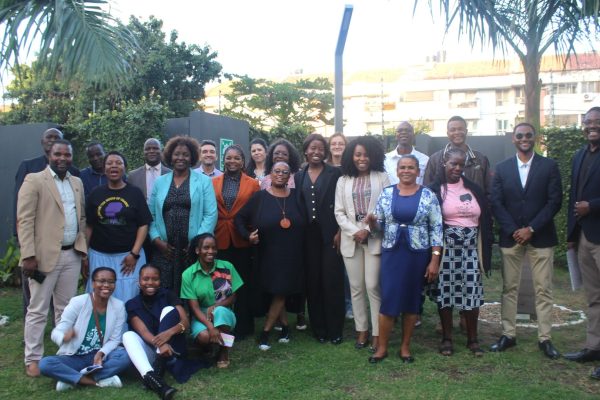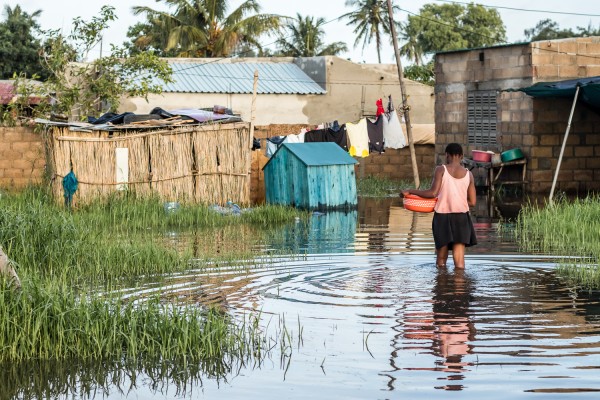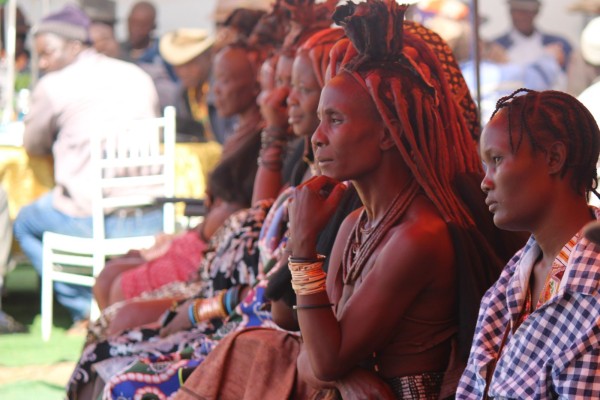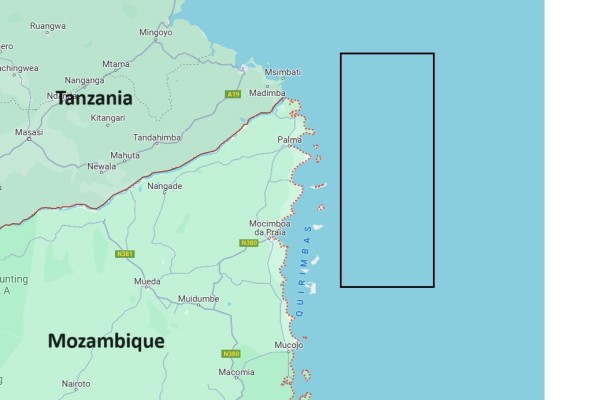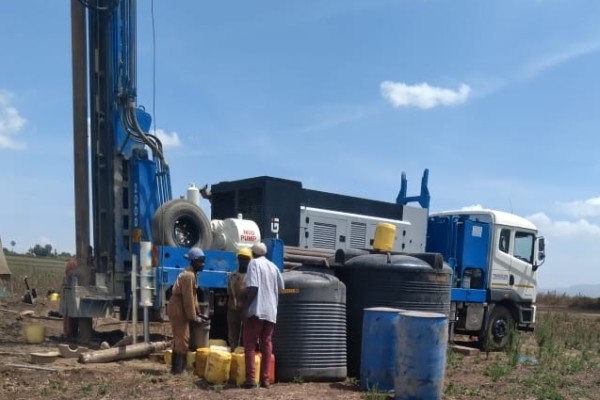Land issues can very often be shrouded in sensitivities.
In Mozambique, the evolution of the latest draft of the country’s land laws may impact the Mozambican way of life quite significantly.
Many women in Mozambique play a huge role around agricultural practices. They are the major work force on the land, major producers of food and responsible for the management of their households. However, they face so many constraints in accessing, inheriting and owning land and can be excluded in decision-making processes.
According to the Strategy and plan of Action for Gender in Agriculture Sector 2016-2025, only 28% of women in Mozambique have land tenue (a fancy French word to describe the connection between people and groups with respect to land and natural resources).
These were only some of the issues that emerged at a recent workshop Natural Justice hosted in the Mozambican capital, Maputo titled: Building Knowledge of Women and Land Tenure and Climate Change.
The workshop, which brought together various groups of civil society organisations, students and farming community representatives unravelled some of the key concerns, particularly related to how land issues affect women and youth.
Programme Officer at Natural Justice, Leopoldina Gouveia, noted that the latest statistics showed that women are the major work force on the land around 92% of women in rural areas and 52,9% of women in urban areas according to the 2017 census and yet women’s rights around land issues, were not always recognised.
“The lack of decision‐making power, customarily attributed to the male relatives, and the lack of access to resources, force women to remain vulnerable to land rights violations. It is this vulnerability that plays a major role in perpetuating their poverty and gender inequality.”
Women’s rights need a voice
An activist at the workshop who champions women’s rights within farming communities, said that they often had training about land issues but felt strongly that local authorities were often promoting inequality.
“They (authorities) sell the land. They mobilise communities and convince communities to abandon their houses. They convince the farmers that they will be given some compensation. But by the end of the day, they don’t save anything– they do resettlement without any compensation, so all of these actions only bring benefit to these leaders who take money from different investors to implement different projects, but the community never gain anything.”
“We are only trying to raise the voice of these vulnerable people who are not benefitting because local authorities are stealing money in the name of the poor people.”
She added that she could use the knowledge gained to strengthen capacity among women in the sector.
“With this knowledge, as a woman who leads other women, it will be easier and helpful to empower other women to make sure that they know all of their rights – their environmental rights and their rights of the land.”
Government and the land law
While land provides for livelihoods and contributes to social well-being, and it is the right of all Mozambicans to use and enjoy it, in the coming months the government has set in motion processes to change the land laws.
Draft 0 of government’s proposed Land Law resulted from an inadequate and ineffective public consultation process. The public consultation process did not cover all areas of the country and all communities. With a population of around 32 million, only a small percentage (roughly 75 000 Mozambicans) have been consulted.
Mozambicans still have an opportunity to make their voices heard regarding the latest draft of proposed laws. The next step includes waiting for Draft 2 (which should include the inputs from the consultations on Draft 1) to be made public and approved by the Land Consultation Forum. Once is approved, it will be sent to the Council of Ministers and then submitted to Parliament, more specifically the Agriculture Working Commission. Comments can be added to Draft 1, in order to impact Draft 2 before it is submitted to the Parliament, and later to the deputies for discussion and approval.
Climate change and the land law
According to the United Nations Sustainable Development Group, in Mozambique… climate change and natural disasters are exacerbating existing vulnerabilities, but it is women and girls who are bearing the heaviest brunt.
Climate change has the power to exacerbate structural inequalities between women and men.
When there are natural disasters – tropical storms and cyclones, floods etc – it places women and girls in precarious situations, leaving them vulnerable to displacement, insecure living conditions, and a heightened risk of food and water scarcity, poverty, as well as exposure to various forms of violence, including sexual violence and harassment.
Gouveia said: “Securing land tenue for women, particularly land customary-based tenure, is a key element to enhancing resilience to climate change impacts. Effective land use and control can minimize the spread of disasters prone land, which is essential to ensure security for women.”
Solutions will be found through consultation with people directly affected by climate change.
People and the land law
The on-going reform of the legal framework governing land access and tenue, coupled with land spatial planning regulations, presents a crucial opportunity to address the specific challenges faced by women.
It is imperative to transform the current land policies and regulations into ones that are gender-responsive, fair and equitable.
Another activist said she was inspired after learning about the struggles of some South African communities and how they had responded to threats. She said that before the workshop, she felt she did not have a voice to defend the community in land-related issues in her own country.
“After this workshop, I feel empowered to share this information with my community. I feel like I have a voice and along with the community, we can fight any threats.”
More details about the land law can be found here.

